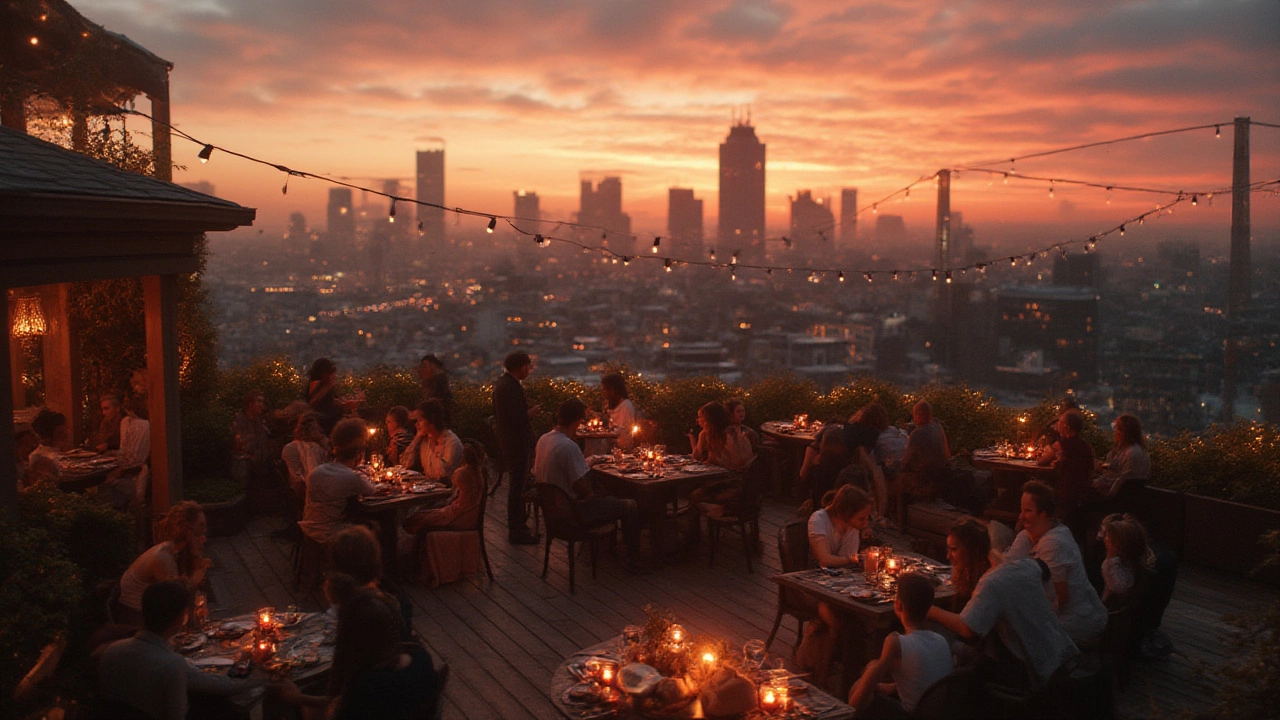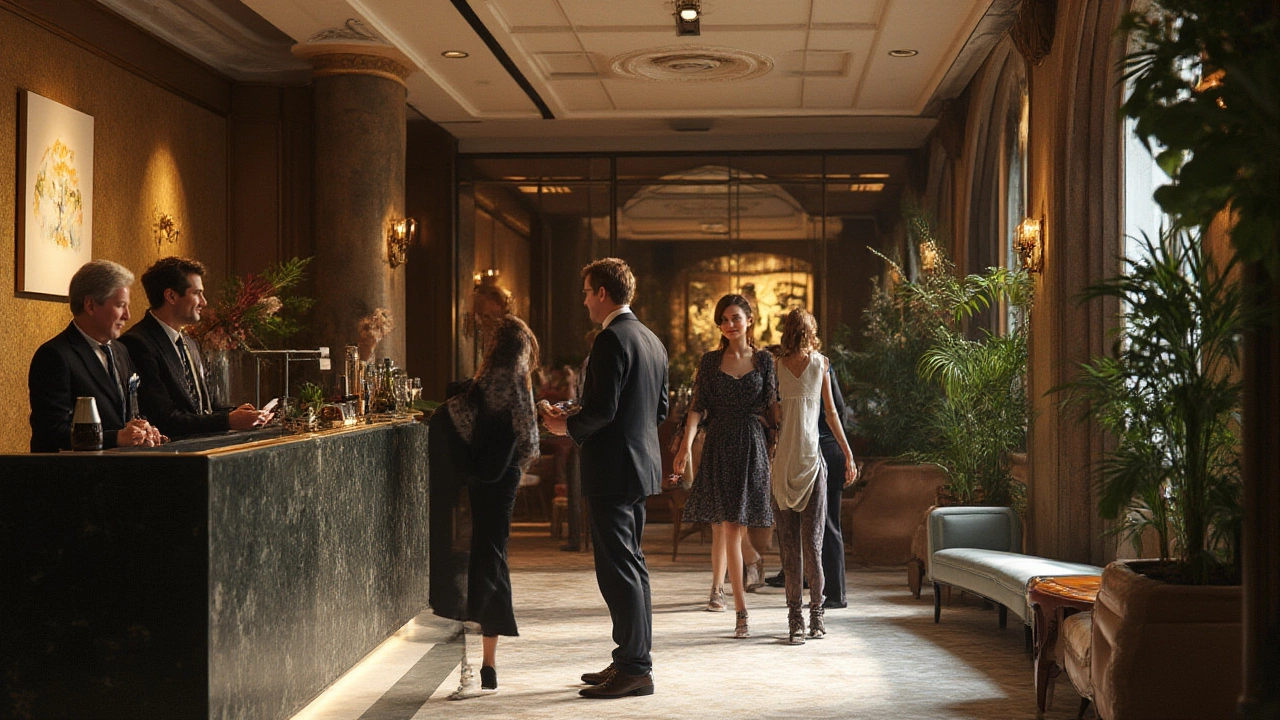City after city—sometimes even street after street—you’ll spot the same old hotel names. They offer a warm bed, free Wi-Fi, breakfast, maybe a gym tucked away in the basement. But what makes a hotel genuinely unforgettable? Sometimes it’s a knock-out rooftop pool, sometimes just a handwritten welcome note. The best hotels stick in your memory for years and make you secretly compare every other stay to theirs. It isn’t all about marble floors or logo-stamped slippers. It’s a mix of personality, innovation, storytelling, and a sharp focus on what actually matters to guests. You know a hotel is truly unique when people brag about their stay, post dozens of Instagram pics, and—most revealing of all—plan their next trip back before check-out. Why do some hotels pull this off effortlessly while others struggle to fill rooms, even in peak season? The answer isn’t hidden; it’s quietly woven into every detail that sets them apart from the rest.
The Power of Personality: Defining a Hotel’s Identity
Forget generic front desks and bland wall art. If you really want people to remember your hotel, you need a distinct personality. Think Ace Hotel in New York: it draws travelers who want to feel like locals in a gritty, creative neighborhood. Or the notorious Icehotel in Sweden—constructed from ice and snow each winter, where rooms literally melt away by spring. These places make sure you remember where you stayed. Don’t just copy what’s trending. Carve out your own voice—be it quirky, artistic, luxe, or eco-conscious. People are wired to notice things that stand out. When you lean into your strengths, like an old factory-turned-hotel playing up its industrial charm, you attract guests who crave something beyond the chain-hotel routine.
Now, let’s talk about a guest’s first five minutes. Neuroscience says we form lasting impressions fast—some studies suggest within 27 seconds. So, what does your lobby say? Is it Instagram gold, or just a place to park your suitcase until check-in? High-end hotels often invest serious cash in custom scents—think Shangri-La’s signature aroma or W Hotels’ energetic citrus blend—because smell is one of the quickest shortcuts to an emotional response. If you walk in and catch a whiff of fresh coffee and pastries, suddenly the morning feels brighter. This isn’t fancy theory. According to a 2023 Cornell Hotel School survey, 82% of guests said they were more likely to remember and recommend a hotel based on small but surprising sensory details.
The people you hire play a massive role in this personality, too. When staff remember guests by name, it can mean more than fancy soaps or free slippers. The Ritz-Carlton famously gives employees the authority (and budget) to go the extra mile, like leaving a slice of beloved birthday cake in a guest’s room because someone overheard a conversation in the lobby. It isn’t magic; it’s intentional culture. That level of attention gets people talking, and free word-of-mouth buzz is still the gold standard in hospitality.
Being unique isn’t always loud and obvious, either. Sometimes subtle touches—a record player in every room, a rotating local art exhibit in the hallways, or even handmade quilts on the beds—turn a stay into a talking point. Boutique hotels have long mastered this game. It’s often what earns them glowing online reviews clustered with photos and little stories. Think about your guest’s journey: What sparks curiosity? What feels like a gift rather than a selling point? That’s usually where the magic lives.
Relatable and memorable details reflect the hotel’s values and raise the bar for what people expect from a stay. They’re the difference between just another hotel bed and a story you’ll tell at every dinner party.

Innovation and Creativity: Modern Ways to Stand Out
Let’s face it: free Wi-Fi and crisp sheets aren’t enough. Guests have higher standards now—call it the "Airbnb effect." People are constantly on the lookout for something fresh that adds value or simply makes life easier. Want to see a stunning example? Check out Japan’s Henna Hotel, run largely by robots. Yep, you can check in with a smiling humanoid, and your suitcase might get carried by a robot bellhop. That’s not everyone’s thing, but it sure gets talked about—and posts about it clock record numbers of social shares.
Tech is changing how hotels operate, but the best don’t just chase the new—it’s about how it’s used. Some hotels use mobile apps to let guests unlock their rooms, control the temperature, order room service, or even book local tours. Hilton’s Digital Key has over 17 million users. Virgin Hotels takes this a step further by letting you split the room and bath spaces with a sliding door—designed from actual guest feedback. Imagine never fighting for bathroom privacy on a girls’ getaway again.
Eco-friendly initiatives are big draws as well. In 2024, the Green Key Eco-Rating program found that 64% of travelers will pay more to stay at a sustainable property. Some hotels go beyond token efforts, like skipping daily towel exchange. You’ll find hotels powered by solar panels, living green walls, and rainwater harvesting. 1 Hotels, an eco-luxe chain, has rooms with reclaimed wood, organic sheets, and even filtered water taps to cut down on plastic bottle waste. That extra honesty about sustainability—not just a sticker on your window but real effort—draws a new, loyal crowd.
Social spaces are getting creative, too. Pop-up rooftop movies, cooking classes led by local chefs, and coworking lounges that feel like a trendy café rather than a forgotten conference room all bring in guests craving more than sleep. It’s not just about beds—it’s about building micro-communities. Hoxton Hotels in London started giving away books curated by staff and local artists in their lobbies, and guests still talk about it years later.
Personalization drives brand loyalty. Algorithms might tailor your Netflix queue, but the best hotels do it in real life. At Kimpton, if you fill out a guest profile, the staff will stock your room with your favorite snacks or even your dog’s favorite treats. Some higher-tier chains, like Four Seasons, maintain guest preference databases across all properties, so your pillow firmness or allergy needs are remembered worldwide.
Why does this work? Because it saves people effort and makes them feel seen. In a 2024 survey by J.D. Power, 71% of hotel guests said thoughtful, personalized service had a “strong” influence on their satisfaction. It turns out we all remember that little extra touch as much as a perfect bedspread.
| Innovation | Example | Reported Impact |
|---|---|---|
| Robot front desk | Henna Hotel, Japan | Increased media coverage, 28% higher repeat bookings* |
| Digital room keys | Hilton Hotels | 70% of users rate the check-in process as 'significantly improved' |
| Custom scent branding | W Hotels, Shangri-La | 82% guest recall boost (Cornell study) |
| Sustainability focus | 1 Hotels, eco brands | 64% traveler preference for green properties (Green Key) |
*Based on internal hotel group data, 2023-2024.

The Guest Experience: Building Loyalty That Lasts
Nothing kills a good impression like a cold shoulder at the front desk or a bathroom that never seems to get hot water. But when everything clicks—a warm welcome, a spotless room, staff who actually listen—people will travel out of their way just to visit your hotel again. The real magic happens in the invisible moments: the feeling of security, the vibe of the place, the little kindnesses that feel unscripted.
Think about Eaton DC, a hotel that’s part boutique, part wellness spa, part activist hub in Washington, D.C. There are meditation classes, filmmaking workshops, and even activist board meetings open to guests. Suddenly, a stay there isn’t just a trip—it’s an experience, layered and memorable. People leave feeling connected, not just rested.
The basics have to work too, obviously. Wi-Fi should just work. Showers should be hot. Cleanliness isn’t a luxury—it's expected. But real loyalty is built on exceeding those basics. A clever example: at the Library Hotel in New York, every floor is organized by a Dewey Decimal theme, and rooms are packed with curated books. Bibliophiles lose their minds over it, and even non-readers come away with a special story.
Food and drink count, more than ever in the age of Instagram. If your breakfast is forgettable, guests will cross the street for a latte and never come back. But have a chef turn pancakes into edible art, or serve pastries using family recipes from the owner’s grandmother, and suddenly breakfast becomes a selling point. The same works for bars—rooftop cocktails taste better with unbeatable skyline views or when decorated with garden herbs grown on-site.
Strong local connections set unique hotels apart. Guests want to feel like they’re tapping the heartbeat of a city, not just living in a bubble. The Palihouse brand in LA, for instance, hosts live music nights with emerging neighborhood acts, drawing not just guests but locals, too. Strong community ties make guests feel like they’re part of something authentic, not just staying over.
Rewards programs get creative, too. Most hotels offer some kind of points, but the best ones (like Kimpton’s) go for quirky perks. Think secret social hours, surprise treats, or free loaner bikes. Small touches take loyalty from a numbers game to a personal connection. When guests say, “I always stay with you guys because you just get me”—that’s when you know you’ve nailed it.
And, of course, you can't skip the online world. Spot-on social media gives people reasons to visit, not just places to sleep. Glowing reviews are currency. But it's the heartfelt stories—like the family that celebrated a milestone birthday with a private chef in the rooftop suite—that keep the brand alive in people’s minds. Encourage guests to share their stories. Respond publicly and with personality (not canned lines). People notice, and they remember who made them feel seen.
So, what makes a hotel business unique? Not a single thing, honestly. It’s the unexpected moments, the bold identity, the warm touches, and a willingness to try new ideas. When you put all these together—personality, innovation, and the kind of guest experience people rave about—you don’t just fill rooms. You build hotel business legend, one guest at a time.

